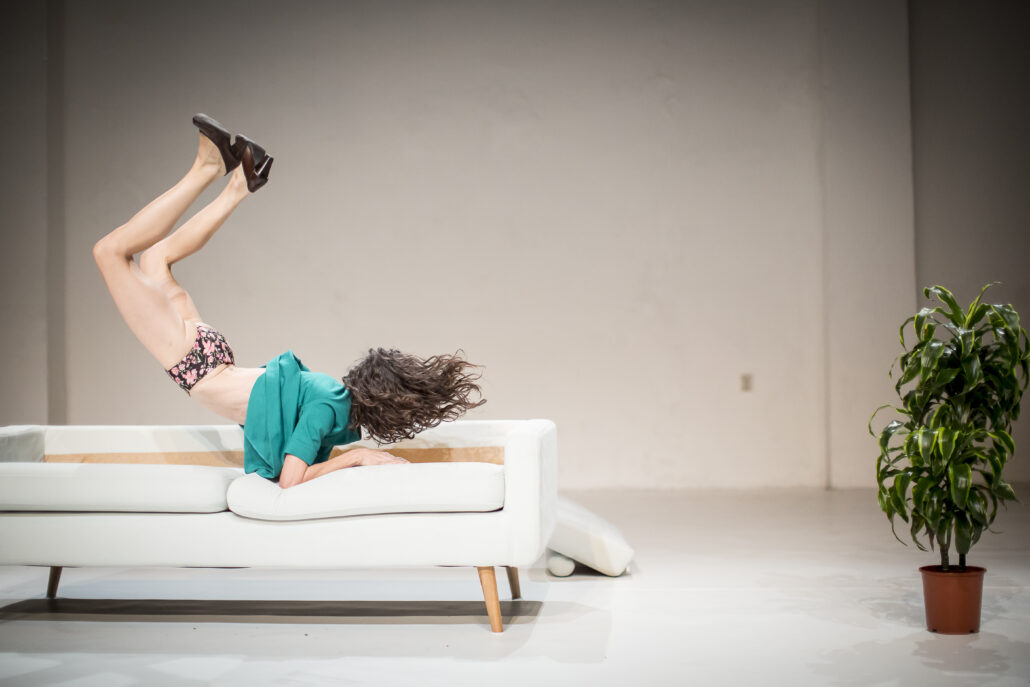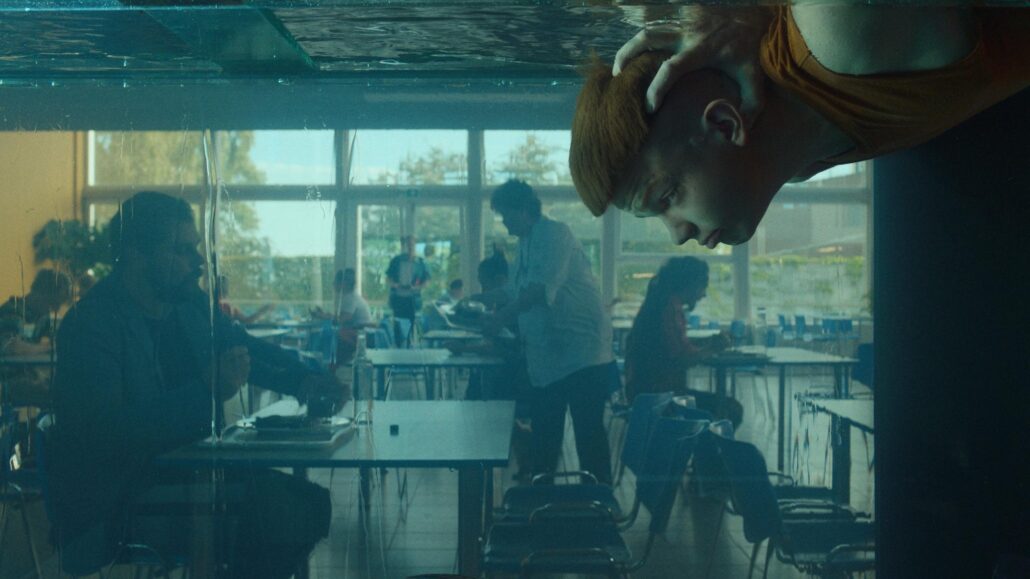Czech Dance 2019-2023
Exceptional Dance Is No Rarity
Looking back over the past four years in search of exceptional dance works is not as difficult a task as it might first appear. Taking the two pandemic years into consideration, those productions that were created prior to that period, but which have stayed with us – in the memories of spectators, but also on stage – despite the unexpected intervention are truly exceptional. Such productions are rare jewels, cherished even years after their premieres. Each is exceptional in its own way and, in short, the Czech Republic’s dance continues to remain active, topical and diverse. The variety of successful works with many performances to their credit speaks to the wide range of spectators, who have plenty from which to choose. International success demonstrates the quality of such works, despite the underfunded conditions in which they are produced. Though suffering from insufficient grants and funding, the artists mentioned here receive regular support and encouragement from the community and continue to shape the image of contemporary Czech choreography. Many of them also train and assist in the development of the next generation of artists, are active in professional and cultural policy discussions and fight for better conditions for the field, thus creating a breeding ground and a strong base for Czech dance. This is also evidenced by a very recent project, Bread&Dance (2023), in which five leading Czech contemporary dance and physical theatre ensembles – 420People, Burkicom, DEKKADANCERS, Farm in the Cave and Lenka Vagnerová & Company – joined forces to open a discussion on long-term sustainability, collaboration and development in an international context.
Suspension
Great surprises of the last four years included works by young creative teams that all at once took dance audiences by storm. One such work is Jáma lvová 1 (The Lion’s Den) by two young performers, Johana Pocková and Sabina Bočková, composer Lukáše Pelána and dramaturg Viktor Černický, created with the support of the company Tantehorse. Full of rhythmic movement and expressive drama, the production draws attention to the urgent topic of political and media manipulation. Pocková and Bočková refined their creative style in the following season with Treatment of Remembering, 2 a sought-after, internationally award-winning work, produced under the name POCKETART and created in collaboration with dancer Inga Zotova-Mikshina. In performances throughout the pandemic, held outdoors and in various unusual locations, this dance poem on an environmental theme gradually took on a new dimension and context against the backdrop of other political events. Straightforward physical expression, stirring dance performances and the strength of Denisa Švachová’s simple and effective scenography continue to draw audiences across Europe.
Choreographer Věra Ondrašíková also addressed the environmental issue in Witness, 3 the title of which references the long-standing testimony of the trees that live among us. Following on from her extremely successful production Guide, 4 she once more foregrounded enchanting lighting design in collaboration with Pavel Kotlík, offering a dreamy immersion in the magic of nature that does nothing to dilute the sense of urgency. Though it might seem unlikely that the production has anything in common with The Witness, Jonathan Blow’s magical computer game, both combine a love for human civilisation with technology and natural magic.
Audience favourite Ostrov! 5 (The Island!) by Jana Burkiewiczová and Burkicom transports us to a deserted piece of land surrounded by water. Artistically rich, dramatic and passionate, this production about the human race as a part of the beauty of nature furthers a strand of dance theatre characterised by strong storytelling, interpretive, dramaturgical, visual and musical elements.
Another award-winning production on the border of physical theatre, performer Cécile da Costa’s Roselyne, 6 also revolves around plants, this time literally. A woman’s danced monologue concerning her essence and the image she presents to others, the work took on very strong connotations during the SARS-CoV-19 pandemic. Beginning with the intention of highlighting a sidelined personality, it absorbed other subtexts, from the loneliness of senior citizens, to the suffocating atmosphere of couples and domestic violence, the growing depression epidemic and the objectification of women’s bodies.

Enunciation
Solos by leading Czech dance artists made a similarly strong impact during this strange period: Miřenka Čechová’s Baletky 7 (Ballet Girls) highlights the inhumane training conditions to which the performing body is subjected at the expense of young girls’ personal development. In sharp contrast, Štěpán Pechar offered a macho statement in Muž z Malty 8 (The Man From Malta), produced by DEKKADANCERS. Both works deserve special attention not just for their content, but also for their form, which transforms the solo performance into a multilayered wonder full of dynamics, great musical and visual effects, rigorous direction and dramaturgy, the likes of which are seen only rarely.
Odloučení 9 (Separation), in which Markéta Vacovská publicly addresses the pain of losing her children, occupies a specific position. It’s hard to find the words to describe such a strong, authentic performance and the catharsis brought about by this painful topic. The work is produced by Spitfire Company and Petr Boháč’s directorial intervention is palpable, just as in the recent solo F*cking Beautiful Spring 10 featuring the excellent dancer Markéta Jandová in the role of a young woman coping with unexpected motherhood.
Faith
The danced duet Soft Spot 11 by Slovak artists Martina Hajdyla Lacová and Sonia Ferienčiková, in which the performers dance with covered faces to accentuate their bodies, also deals with femininity. Petra Tejnorvá innovatively researches the potential closeness of strangers in the project Duety 12 (Duets), staged in galleries and non-theatrical spaces where passersby and professionals mingle in dialogues of movement.
In contrast, the exceptional performers Václav Kuneš and Helena Arenbergová show us what a duet between those who have been dancing for over twenty years looks like in Where 13 staged in the intimate space of Studio Maiselovka, 420People’s rehearsal space. The pure dance form, mutual commitment and stage charisma of such experienced performers moving within reach of several audience members made the Advent performance an ideal meditation, as well as an appeal for mutual respect and love.
Acceptance
Regional ballet ensembles have given local choreographers the green light, especially when it comes to socially-engaged topics. Favourite productions to date include Frida 14 choreographed by Marika Mikanová, Carmen 15 by Jiří Pokorný and Petr Zuska’s Rádio Svobodná Bystrouška 16 (Radio Free Cunning Little Vixen). The South Bohemian Theatre Ballet Company also boasts the first dance adaptation of Anthony Burgess’s novel, A Clockwork Orange, 17 which was wonderfully shaped into dance by choreographers Ondřej Vinklát and Tomáš Rychetský of the progressive ensemble DEKKADANCERS. It is increasingly common for ballet companies in public theatres to commission productions from contemporary Czech dance artists, a practice which is finally beginning to close the quality gap that had emerged between dramaturgy in the capital and in regional repertory companies.
The repertoire of Prague’s long-running independent dance companies also reflects engagement with social themes, particularly the dialogue between what is “normal” and what is “moral”, and includes a number of projects that have found success with audiences. Lenka Vagnerová’s Panoptikum 18 offers insight into the exploitation of freaks for the amusement of high society, while Farm in the Cave’s Commander, 19 directed by Viliam Dočolomanský, uncovers the dangerous virtual reality of twelve-year-old boys boasting about their violent and neo-Nazi tendencies online. Sylva Šafková’s duet, Why Things Go Wrong, 20 is inspired by Aaron James’ book, Assholes: A Theory, and highlights the proliferation of “assholes” and increased social tolerance towards reckless behaviour. Produced by 420People, the production features the excellent performers Viktor Konvalinka and Michal Heriban. Addressing the polarisation of Czech society days before the Czech presidential election, the premiere could not have been more timely.

1 Johana Pocková, Sabina Bočková: Jáma lvová, POCKETART, premiere 3. 12. 2019, Ponec, Prague.
2 Johana Pocková, Sabina Bočková: Treatment of Remembering, POCKETART, premiere 5. 10. 2020, Ponec, Prague.
3 Věra Ondrašíková: Witness, premiere 9. 9. 2021, Ponec, Prague.
4 Věra Ondrašíková: Guide, premiere 3. 12. 2015, Ponec, Prague.
5 Jana Burkiewiczová: Ostrov!, Burki&com, premiere 8. 11. 2021, La Fabrika, Prague.
6 Cécile da Costa: Roselyne, premiere 29. 10. 2019, Studio ALTA, Prague.
7 Miřenka Čechová: Baletky, Společenstvo Bezhlavých / SpitFire Company, premiere 23. 2. 2022, Palác Akropolis Prague. The production staged in 2022 was developed from the multimedia online film version metaBaletky (2021) and both emerged from the author’s 2020 book of the same name.
8 Štěpán Pechar: Muž z Malty, DEKKADANCERS, premiere 30. 5. 2021, Azyl78, Prague.
9 Markéta Vacovská: Odloučení, premiere 15. 6. 2020, Venuše ve Švehlovce, Prague.
10 Petr Boháč, Markéta Jandová: F*cking Beatiful Spring, Spitfire Company, premiere 18. 3. 2023, Ponec, Prague.
11 Adrienn Hód: Soft Spot, premiere 10. 3. 2022, Ponec, Prague.
12 Tereza Ondrová, Petra Tejnorová: Duety, Temporary Collective, premiere 20. 12. 2019, Ponec, Prague.
13 Václav Kuneš, Helena Arenbergerová: Where, 420people, premiere 19. 11. 2022, Studio Maiselovka, Prague.
14 Marika Hanousková: Frida, North Bohemian Theatre Ballet Company , 21. 2. 2020, North Bohemian Theatre, Ústí n/ L.
15 Jiří Pokorný: Carmen, National Moravian-Silesian Theatre Ballet Company, premiere 12. 5. 2022, Jiří Myron Theatre, Ostrava.
16 Petr Zuska, Štěpán Benyovszký: Rádio Svobodná Bystrouška, South Bohemian Theatre Ballet Company, premiere 27. 11. 2020, Metropol House of Culture, České Budějovice.
17 Anthony Burgess, Ivan Acher, Tomáš Rychetský, Ondřej Vinklát: Mechanický pomeranč, South Bohemian Theatre Ballet Company, premiere 26. 11. 2021, Metropol House of Culture, České Budějovice.
18 Lenka Vagnerová: Panoptikum, Lenka Vagnerová & Company, premiere 7. 12. 2018, Komedie Theatre, Prague.
19 Viliam Dočolomanský: Commander, Farma v jeskyni, premiere 13. 6. 2022, DOX Centre for Contemporary Art, Prague.
20 Sylva Šafková: Why Things Go Wrong, 420PEOPLE, premiere 11. 3. 2023, Studio Maiselovka, Prague.
categories
Dance / Seasons’ overview
AUTHOR
Lucie Hayashi

 Learn
Learn







